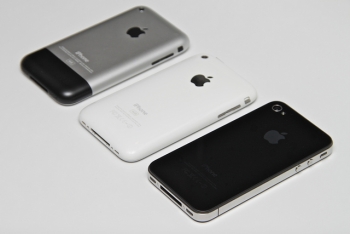5 Common Concerns about Mobile Broadband

Although it is one of the relatively new forms of broadband, mobile broadband, also referred to as 3G or 4G, is now widely available with more extensive coverage than any other form of broadband after satellite. Since it uses the mobile phone networks to provide coverage, you should be able to access your mobile broadband connection from anywhere where your mobile phone finds a signal. In the United Kingdom, for example, this means that it covers almost 99 percent of the population. This makes it far more widely available than cable or even ADSL and, in some of the more remote rural areas, it is the only practical option for connecting to the Web. There are, however, some common concerns and misconceptions about mobile broadband. The following should help you to better understand how it works.
1 – Limited Download Allowances
Not so long ago, the average mobile broadband package entitled you to a download limit of one gigabyte or even less. If you only use mobile broadband to occasionally browse the Web or check your emails from your smartphone, then this should be adequate. However, for everyday Internet usage or as your primary Internet connection by way of a USB dongle connected to your computer, this is far from satisfactory. However, the download allowances are increasing all the time and, for a modest monthly subscription, you should be able to find packages with download limits of five or ten gigabytes. For the casual user, this should be sufficient. For heavy users, a fifteen gigabyte limit is recommended.
2 – Expensive Data Changes
It is very important that you know your monthly download limits as you can end up being charged extra without warning if you go beyond them. However, the days of being charged enormous rates for excess use are fast disappearing. In spite of this, you should always keep an eye on your usage, particularly if you are in the habit of downloading large amounts of data such as movies or video games. Some providers make it easy for you to find out how much of your allowance you have used. Other companies might throttle back your connection speed rather than charge you extra should you go over the limit.
3 – Slow Connection Speeds
If you live in an urban area of the United Kingdom, then you will probably already have access to very fast Internet connections. With fibre-optic cable broadband becoming widespread in cities, many people can enjoy download speeds of 100Mbps or even more. While mobile broadband only offers a fraction of this speed, it is still comparable to the average fixed-line broadband connection in most of the country. As of June, 2013, mobile broadband speeds average at about 8Mbps in the UK. 4G, the fourth generation of mobile broadband, is currently coming into being in the UK and elsewhere in Europe. This is considerably faster than its predecessor, offering speeds up to 20Mbps.
4 – Prohibitively Long Contracts
A lot of people are put off by the often long contracts associated with mobile broadband. If you want to purchase a USB modem and use mobile broadband from your desktop or laptop computer, you will usually find that most of the packages involve a two-year contract. However, there are plenty of other options available with contracts as short as one month. All of the major mobile networks in the UK also provide pay-as-you-go options for which you pay per megabyte downloaded. Be aware, however, that these options are relatively expensive.
5 – High Costs Abroad
You may remember the frequent horror stories that appeared in the news as little as a couple of years ago in which people came home to phone bills of thousands of pounds because of heavy mobile broadband usage while they were abroad. While the EU has now put a cap on what telecommunications companies can charge while roaming, the costs can still be extremely high. In short, using mobile broadband abroad is not recommended. Use it only if it is an emergency and, if you need something more suitable, consider buying a local pay-as-you-go package. Data charges while roaming get even higher when outside of Europe.
